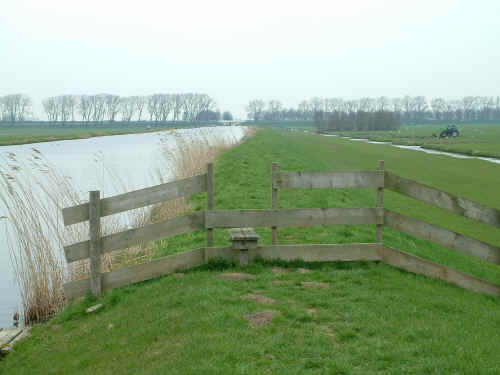
 Ple4Win
Ple4Win

The history of Ple4Win
Pipeline crossing Dubbele Wiericke
The Ple4Win program has a long history. The beginnings date back to 1965, when the dutch Gasunie encountered a problem during the construction of the first high-pressure gas pipeline from the north of the Netherlands (Friesland) to the west of the country (the “Randstad”). The pipe had to cross the Dubbele Wiericke, an important dike. The dutch authority Rijkswaterstaat demanded a “safe” construction of this crossing. As there was no knowledge about pipeline behaviour in soft soils, a very sturdy, complex and expansive crossing was build:

View of the Dubbele Wiericke, not far from the actual pipeline crossing.

Schematic drawing of the pipeline crossing the dike and waterway.
To construct each crossing of an important dike the same way was neither proactical not affordable. Therefore research into pipe behaviour, pipe-soil interaction and automated stress and strain calculations of buried pipelines was initiated, ultimately leading to the current Ple4Win program.
The IT roots of Ple4Win
During the development and evolution of the computer program to calculate the behaviour of buried pipelines the world of computers changed a lot. And so did the program. Below a short movie about the IT root of the current Ple4Win program: